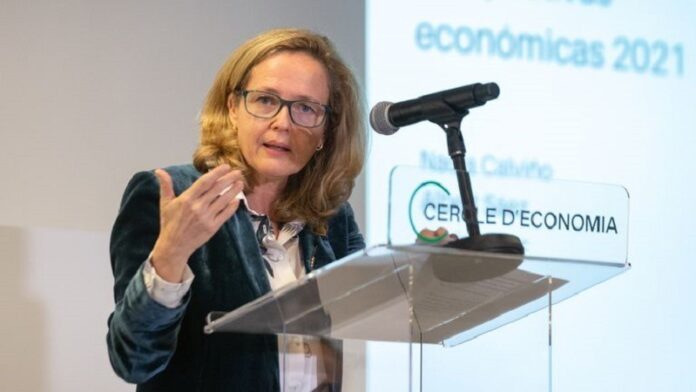
Spain has done more or less what it had to try to combat the economic effects of the coronavirus crisis, but it’s spent less money on the trouble than other countries, consistent with the financial institution and therefore the International fund. Although the executive rhetoric has not changed significantly, the Economy Ministry is now admitting that the third wave of the pandemic will negatively affect growth a minimum of within the half-moon of the year, consistent with a document seen that also warns against prematurely ending relief measures for struggling businesses.
The deterioration of the economic forecast during a country that has already experienced one among the sharpest contractions in Europe, and therefore the risks that this entails, suggests that Spain will introduce more support initiatives over the approaching months while the country waits for the positive effects of the Covid vaccines and therefore the release of €140 billion in European recovery funds.
Failing that, there’s a significant risk that the economy could soon be handling a wave of insolvencies that both the IMF and therefore the ECB is warning about. which could lead to bother for the banking sector, which the govt wants to avoid in the least costs.
The report is seen by underscores the necessity for measures, stating that it’s indispensable to avoid a premature withdrawal of support and to arrange schemes to help viable businesses. And at an interview organized by Barcelona’s Cercle Economia association on Monday Economy Minister Nadia Calvino offered a couple of more details about the type of policies planned by Spain minority government, made from a coalition of the Socialist Party (PSOE) and therefore the leftist Unidas Podemos.

The executive wants to activate as soon as possible direct aid for struggling companies which has been a key demand of business leaders unions et al. who are dissatisfied with a recent relief package that focused on tax breaks state-guaranteed loans, and other sorts of indirect support. Regional governments in tourism-dependent areas are especially vocal in their demands for direct aid, a move that’s also supported by Bank of Spain Governor Pablo Hernández de Cos, the opposition Popular Party and even some members of the chief itself.
The Economy Ministry’s document cites a report by the Bank of Spain, whose position is that while the government’s credit-based measures have helped companies stay afloat, the latter’s debt levels have soared as a result. In other countries, credit schemes are complemented with direct aid. The Spanish financial institution has warned that insolvency could affect nearly one in five companies if the consequences of the crisis are long-lasting, particularly in an economy that’s highly hooked into sectors hard hit by the pandemic like tourism. and therefore the effects might be compounded by the structural problems of the Spanish market, which relies heavily on temporary contracts.
Forecasts overtook by reality Calvino continues to uphold the ministry’s economic forecast for this year a rate of growth of seven .2% that would rise to 9.8% if the EU funds are spent but the market consensus is that those figures are overtaken by reality. and therefore the 28-page report seen by this newspaper admits that some of the sectors hardest hit by the crisis (hospitality, transportation, and recreational services) will still not be back to a traditional situation at the top of the year.
The minister defended the government’s policies despite the warnings from international organizations about the country’s insufficient response to the crisis. She noted that the executive’s measures represent “20% of gross domestic product (GDP)” including public loan guarantees, the ERTE job retention scheme, support for the self-employed, and therefore the guaranteed minimum income scheme.
But she also pledged to adopt new measures or instruments as long as they’re necessary and stressed that we are getting to increase direct aid to businesses and therefore the self-employed suffering from the pandemic, with attention on small and medium companies and viable firms. The key will dwell on defining what’s a viable firm.
A piece of recommendation that former governor Mario Draghi reportedly gave French minister of finance Bruno LeMaire at the outset of the coronavirus crisis could well add up for Spain to Spend your money, my friend. The time has come to spend. Now. Later it’ll be too late.








